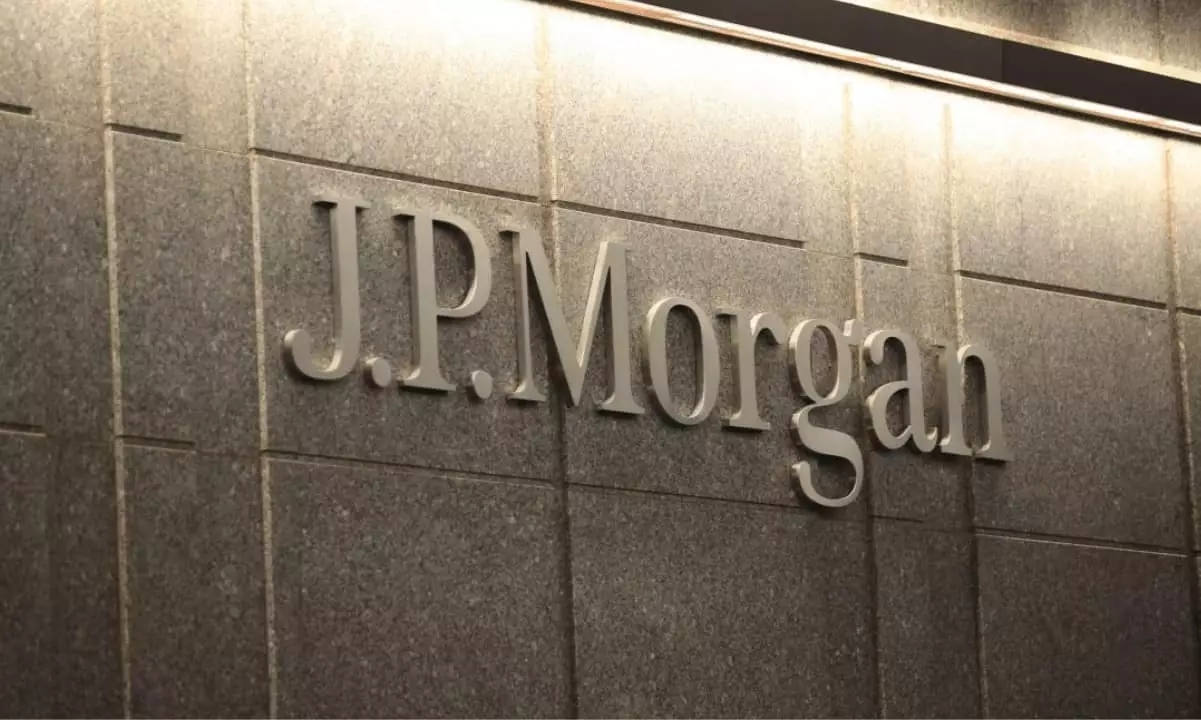For years, JPMorgan Chase stood firmly in the camp of skeptics regarding cryptocurrencies. Under the leadership of Jamie Dimon, the banking giant coordinated a narrative casting Bitcoin and other digital assets as dangerous, speculative bubbles fueled by illicit activities. Dimon’s dismissive comments—calling Bitcoin a “fraud” and warning that it would “blow up”—signaled a desire to distance JPMorgan from what was then perceived as a volatile and unregulated fringe industry. His stance, although eventually softened, reflected a skeptical, cautious approach that prioritized traditional banking stability over embracing the crypto revolution.
Yet, the financial landscape is shifting dramatically. The possibility that JPMorgan might begin offering loans backed by customer-held cryptocurrencies suggests a seismic change—not just in policy, but in the very mindset of a banking institution long wary of digital assets. If this move materializes, it could signal the beginning of mainstream acceptance, albeit on its own terms. The implications are profound: it represents a tentative acknowledgment that cryptocurrencies are no longer mere speculative toys but potentially vital components of modern financial portfolios.
From Skepticism to Strategy: The Market’s Hidden Power
The pivot from outright condemnation to cautious engagement is driven largely by market realities. Crypto assets have matured, developing institutional-grade infrastructure, liquidity, and a dedicated investor base that demands practical financial products. JPMorgan’s consideration to lend against crypto holdings like Bitcoin (BTC) and Ethereum (ETH) is not a leap into uncharted waters but a calculated strategy to stay relevant amidst rising competition.
Interestingly, this move could place JPMorgan at odds with its own historical rhetoric. Dimon’s previous statements condemning crypto as used mainly by “murderers and drug dealers” are now overshadowed by the pragmatic recognition that crypto’s widespread adoption cannot be ignored. Although some banking elites still harbor reservations—citing concerns related to fraud, money laundering, and regulatory capture—the industry pressure and client demand create an irresistible push towards integrating digital assets into traditional finance.
Moreover, JPMorgan’s plans seem to extend beyond simple collateralization. The concept of offering loans secured by crypto ETFs hints at an overarching strategy to commodify and leverage digital assets just as banks do with traditional securities. This strategic evolution raises questions about how these assets will be managed, especially when defaults occur—an unresolved challenge that could threaten both the bank’s stability and its reputation if mishandled.
The Regulatory and Competitive Landscape: A Catalyst for Change?
The banking industry’s cautious embrace of crypto is acutely impacted by evolving regulatory standards. In recent months, U.S. lawmakers have taken significant steps—passing bills to regulate stablecoins and easing restrictions on crypto activities for financial institutions. These developments create a more predictable environment for banks like JPMorgan and Morgan Stanley, offering clarity that was previously lacking.
Yet, skepticism still persists, notably from financial giants such as Goldman Sachs, which remains hesitant to fully plunge into the crypto sector. Concerns about compliance, illicit activity, and the stability of digital assets remain valid and pressing. Banks must carefully navigate these waters to avoid reputational damage and regulatory repercussions.
From a broader perspective, JPMorgan’s move can be seen as a strategic necessity rather than a wholehearted endorsement of the crypto ethos. It signals that traditional banking recognizes the inevitability of digital assets in the mainstream financial ecosystem. However, this transition also exposes the inherent contradictions of such institutions: masses of capital waiting on the sidelines, ready to pivot into crypto, contrasted with cautious regulatory lip service to prevent chaos.
Ultimately, JPMorgan’s willingness to explore loans secured by crypto assets underscores an important truth. In the center-right liberal view, fostering innovation within a regulated framework balances the need for economic growth and stability. While not surrendering to the unregulated wild west of crypto, banks that adapt will likely dominate the future financial landscape, leaving behind those still stuck in skepticism or outright rejection. The question remains: are they pioneering a new era of finance or gambling with the stability of the system itself?
















Leave a Reply